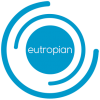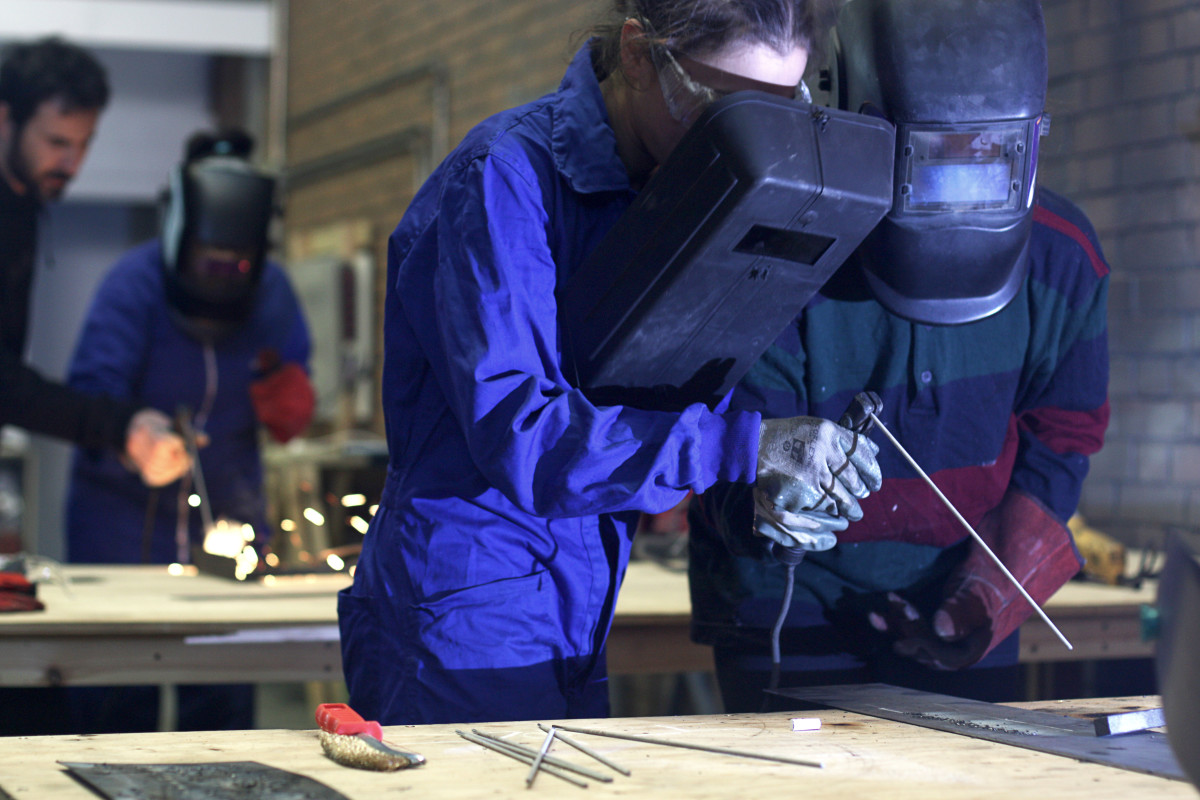We are delighted to see how many inspiring community-led urban development projects are shaping European cities!
We would like to thank all the initiatives that shared their story for the Funding the Cooperative City Call! Instead of a competitive process, the call was conceived as an occasion to collect and discover the variety of initiatives that are working in European cities, helping us to identify the potentials and the barriers that community-led urban development projects are facing today. Within the context of Funding the Cooperative City, we did not select the “best projects” but looked into the relevance and potential transferability of the presented economic and organisational models in Budapest, Madrid and Rome. The initiatives whose work corresponded most the challenges of these cities will be invited to the upcoming workshops in Budapest, Madrid and Rome to share and exchange their experience with other, like-minded local and international initiatives.
Altogether, we have received 81 beautiful stories and we will share with you their experience over the next weeks, please follow us on Facebook!
We would also like to thank our Jury (Mauro Gil-Fournier, Mauro Baioni, Deborah Navarra, Sharon Ambrosio, Tiago Mota Saraiva, Réka Matheidesz, Ramon Marrades) for sharing with us their knowledge and helping us identify which experiences would best connect to situations in our workshop locations. Please find below the selected initiatives:
Afrikaanderwijk Cooperative, Rotterdam (NL)
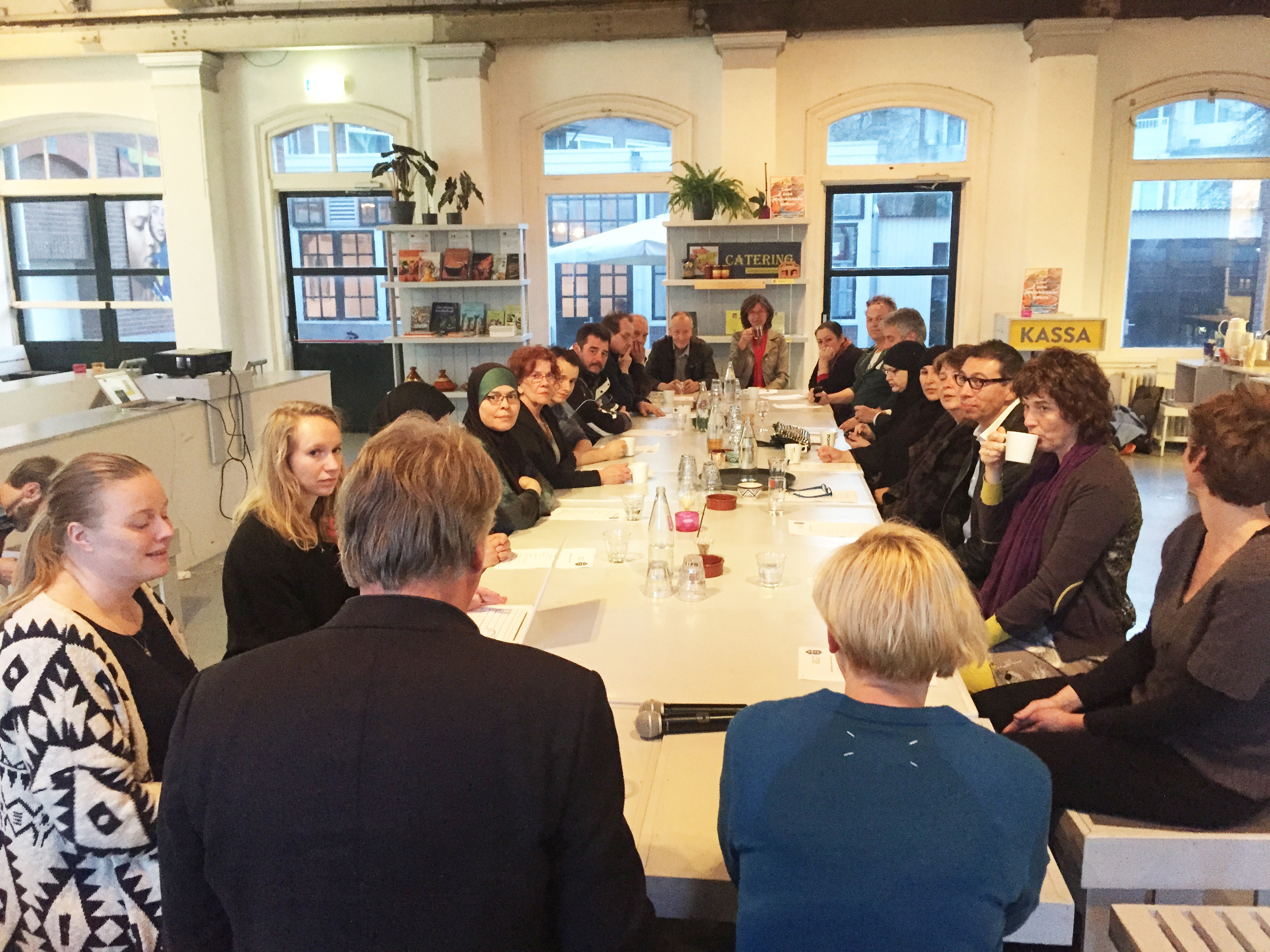 The Afrikaanderwijk Cooperative sees the advantages of the diversity of cultures, inhabitants, and shopkeepers, contributing to the neighbourhood with their own talents, knowledge, and skills. It operates in a multicultural and international area in Rotterdam. In 2013 the Afrikaanderwijk Cooperative was founded as a custom-made organisational form: a cooperative on the scale of a neighbourhood. The cooperative is an umbrella organisation that connects workspaces with shopkeepers, local makers, social foundations, and the local food market. The Cooperative recognises the power of local communities and small organisations in which learning and work are intertwined.
The Afrikaanderwijk Cooperative sees the advantages of the diversity of cultures, inhabitants, and shopkeepers, contributing to the neighbourhood with their own talents, knowledge, and skills. It operates in a multicultural and international area in Rotterdam. In 2013 the Afrikaanderwijk Cooperative was founded as a custom-made organisational form: a cooperative on the scale of a neighbourhood. The cooperative is an umbrella organisation that connects workspaces with shopkeepers, local makers, social foundations, and the local food market. The Cooperative recognises the power of local communities and small organisations in which learning and work are intertwined.
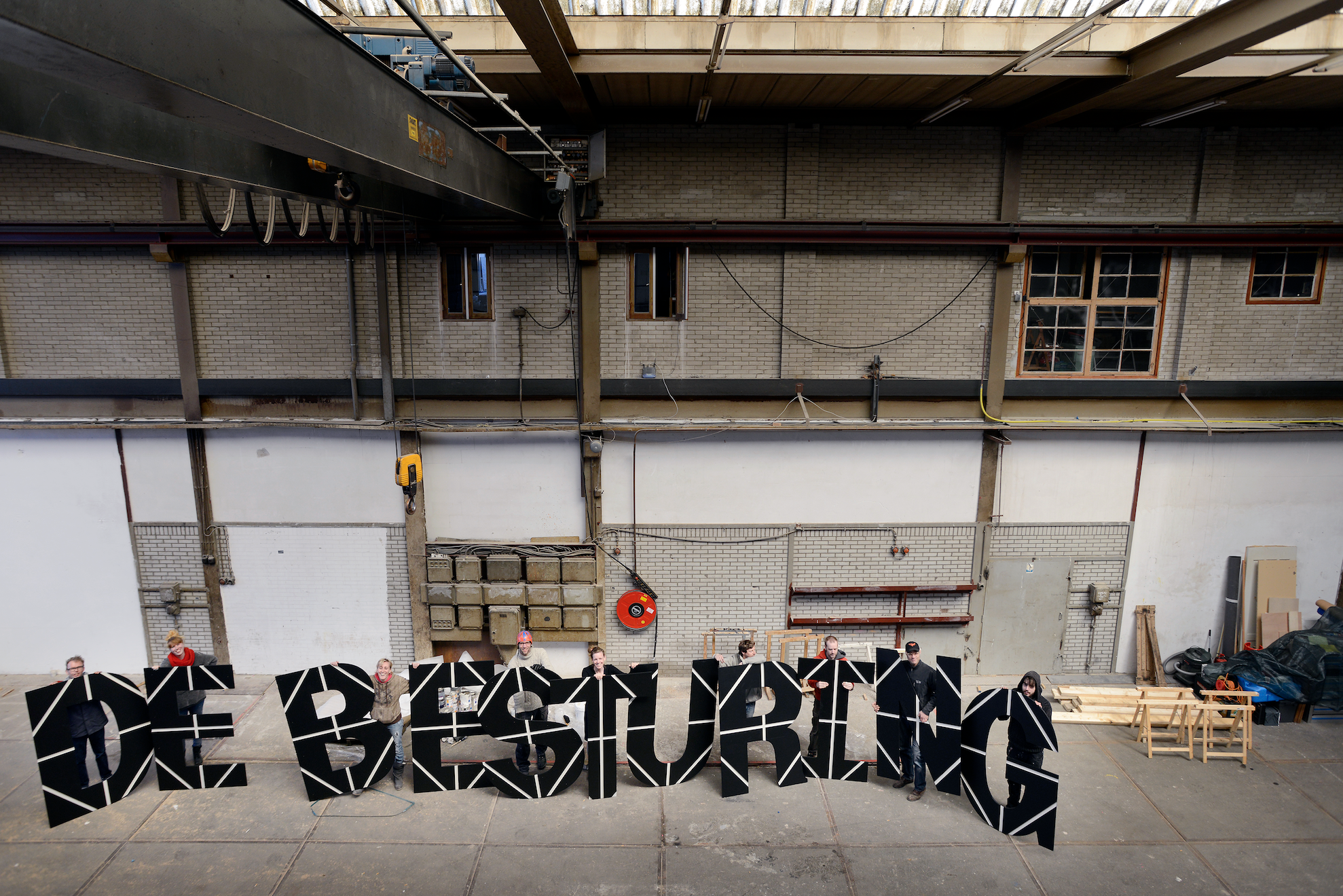 The creative hub De Besturing has started during the re-development of an industrial area in the Hague. When this process stopped, the DB community started to push their presence further in the area, taking over the vacant spaces and having as a long term vision to build a place for innovative thinking in arts, design and technology. Within DB, independent entrepreneurs develop projects under the umbrella of a cooperative and profits of the cooperation are redistributed to kick-start new initiatives. DB operates as an opinionated community by having a role in the public debate around culture and innovation in their city.
The creative hub De Besturing has started during the re-development of an industrial area in the Hague. When this process stopped, the DB community started to push their presence further in the area, taking over the vacant spaces and having as a long term vision to build a place for innovative thinking in arts, design and technology. Within DB, independent entrepreneurs develop projects under the umbrella of a cooperative and profits of the cooperation are redistributed to kick-start new initiatives. DB operates as an opinionated community by having a role in the public debate around culture and innovation in their city.
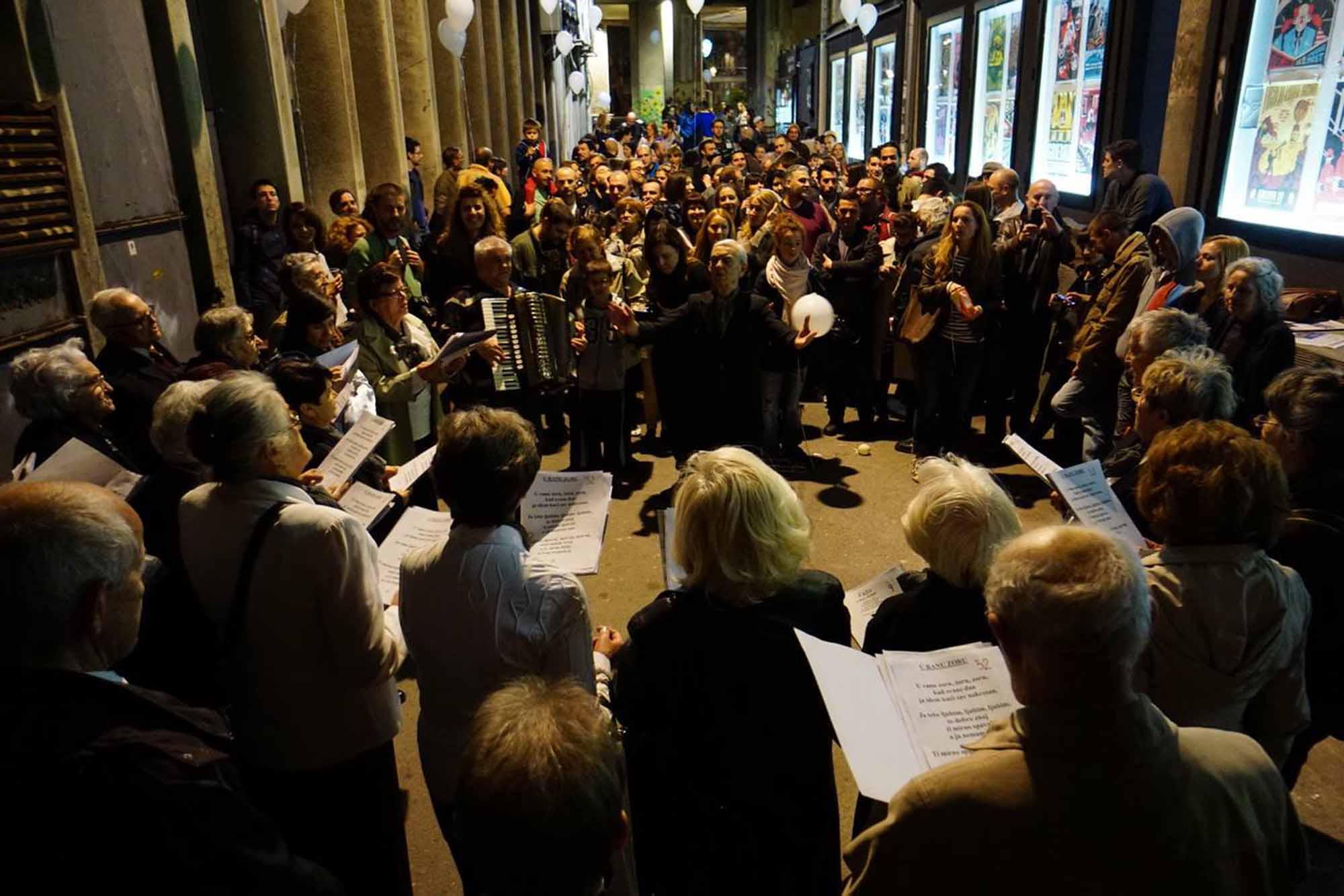 The Street Gallery is located in the centre of Belgrade, using the walls of a private cinema. Its objective is to reconstruct and revitalise neglected public spaces for cultural and artistic purposes. The gallery hosts exhibition openings every two weeks, and regularly accommodates workshops on various themes. The project was initiated by members of the Belgrade collective Ministry of Space, who, together with the local community, refurbished the space and provided public furniture. The Street Gallery is a pioneering case of a community managing public space in Serbia that led, through negotiations with the local municipality, to a legal framework which defines in which way administrations can let public properties to local civic organisations. The Street Gallery project has inspired projects in seven other cities across Serbia.
The Street Gallery is located in the centre of Belgrade, using the walls of a private cinema. Its objective is to reconstruct and revitalise neglected public spaces for cultural and artistic purposes. The gallery hosts exhibition openings every two weeks, and regularly accommodates workshops on various themes. The project was initiated by members of the Belgrade collective Ministry of Space, who, together with the local community, refurbished the space and provided public furniture. The Street Gallery is a pioneering case of a community managing public space in Serbia that led, through negotiations with the local municipality, to a legal framework which defines in which way administrations can let public properties to local civic organisations. The Street Gallery project has inspired projects in seven other cities across Serbia.
Cascina Roccafranca, Turin (IT)
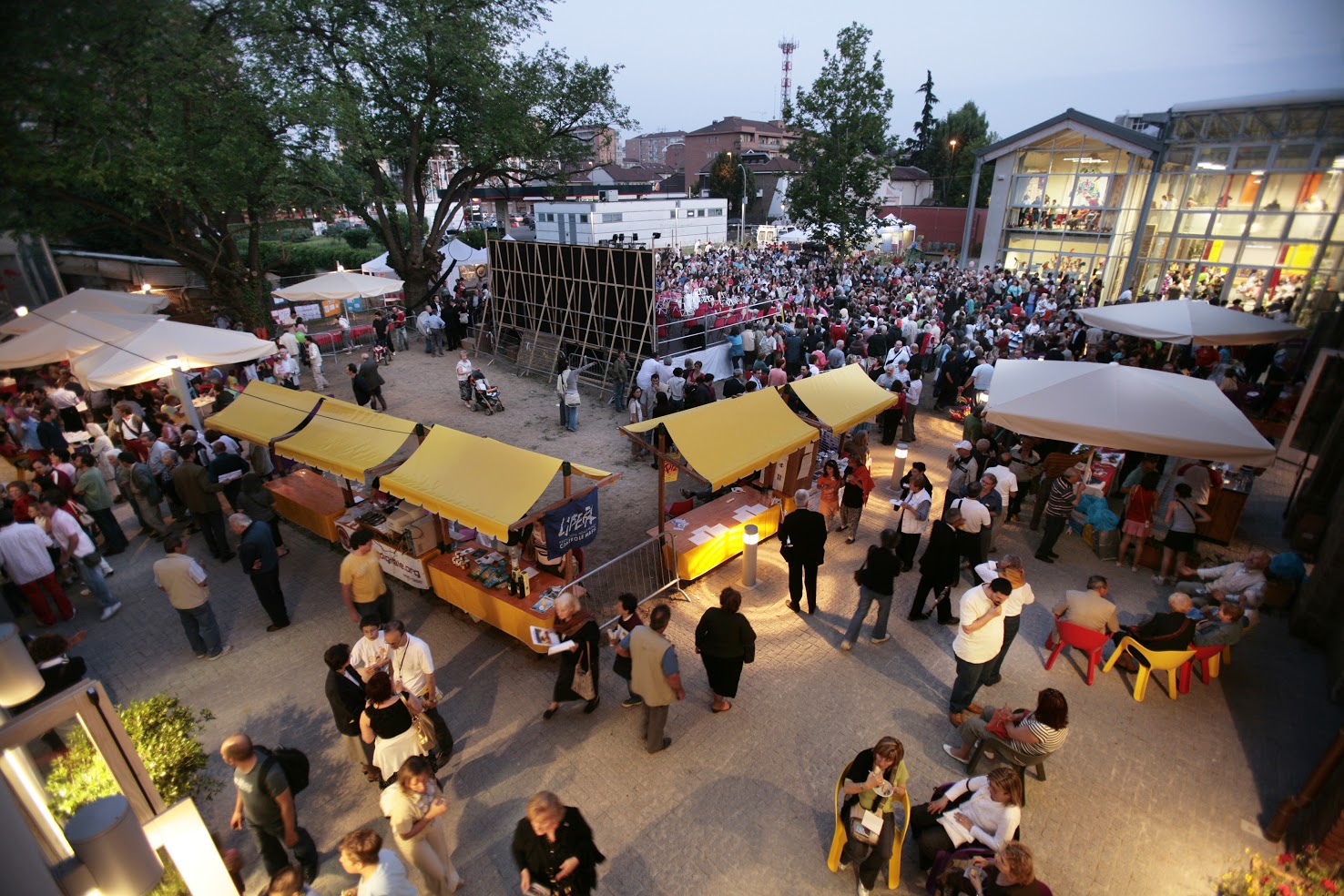 Cascina Roccafranca is a public social and cultural centre operating in a 2500m2 building and a 2000m2 courtyard at the periphery of Turin. The space hosts various services, facilities, a museum, events, more than 100 courses and the possibility to realise projects around specific subjects like ethical consumption and fair trade, inner and physical wellness, families and arts as well as counciling for legal issues around housing or trade. The “Cascina Foundation” is a unique model of a foundation established to manage a municipal building. Due to the reduction in public investment over culture, Cascina Roccafranca Foundation developeded a model where the public resources are used for new social and cultural investments, whilst the operating costs are covered by the positive turnover of economic activities, like the restaurant.
Cascina Roccafranca is a public social and cultural centre operating in a 2500m2 building and a 2000m2 courtyard at the periphery of Turin. The space hosts various services, facilities, a museum, events, more than 100 courses and the possibility to realise projects around specific subjects like ethical consumption and fair trade, inner and physical wellness, families and arts as well as counciling for legal issues around housing or trade. The “Cascina Foundation” is a unique model of a foundation established to manage a municipal building. Due to the reduction in public investment over culture, Cascina Roccafranca Foundation developeded a model where the public resources are used for new social and cultural investments, whilst the operating costs are covered by the positive turnover of economic activities, like the restaurant.
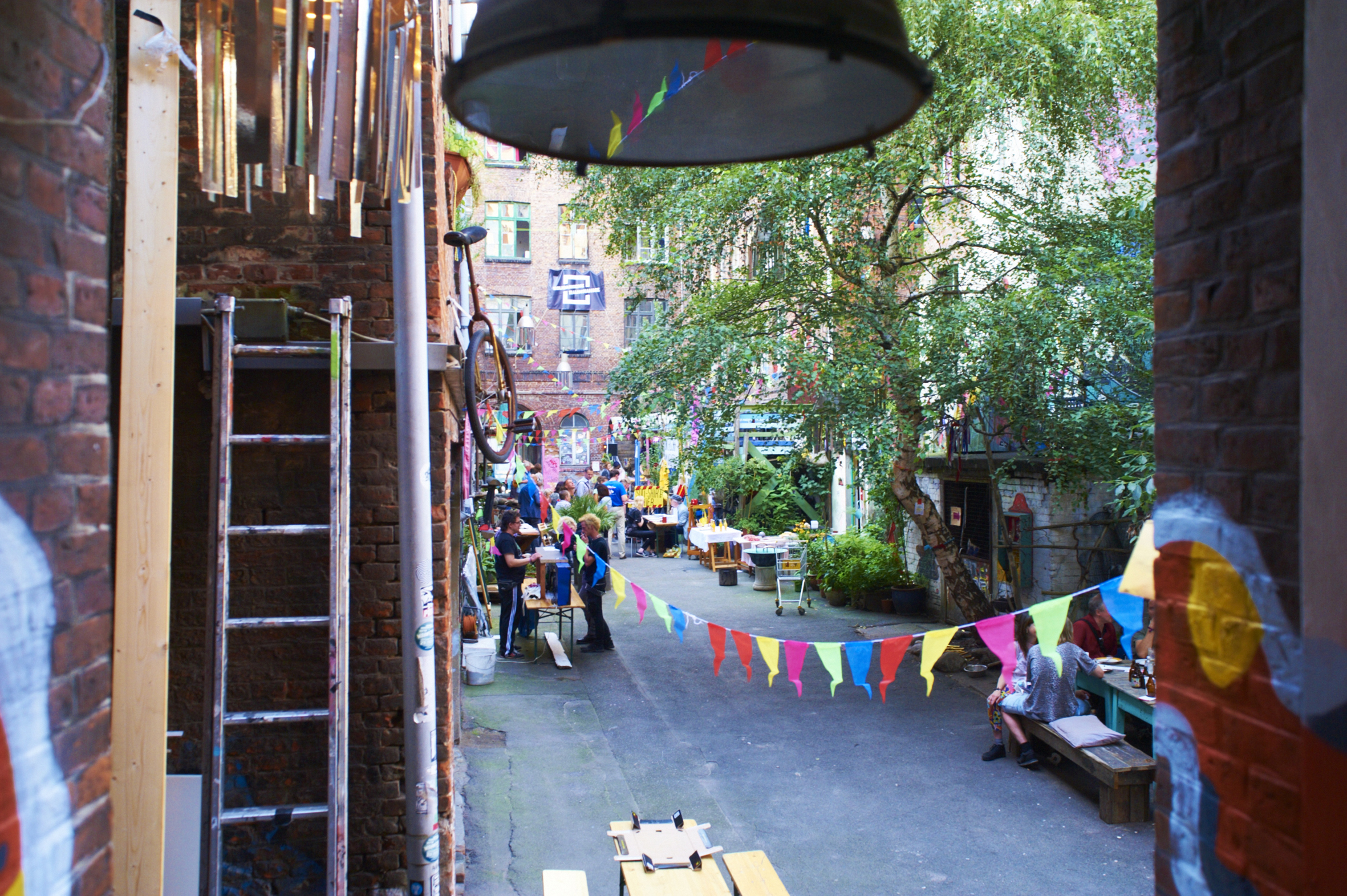 The project takes place in twelve historic buildings in Hamburg’s city centre which have been transformed into a cultural, political and social non-commercial hub for the collectivity. Starting as occupied buildings, the project has been turned into a legal process to re-activate the neighbourhood. The Gängeviertel established cooperative shares that may be purchased not only by the people who seek to use the space but also by the general public. Besides the community shares and voluntary work, the complex creates significant revenue from nightlife activities.
The project takes place in twelve historic buildings in Hamburg’s city centre which have been transformed into a cultural, political and social non-commercial hub for the collectivity. Starting as occupied buildings, the project has been turned into a legal process to re-activate the neighbourhood. The Gängeviertel established cooperative shares that may be purchased not only by the people who seek to use the space but also by the general public. Besides the community shares and voluntary work, the complex creates significant revenue from nightlife activities.
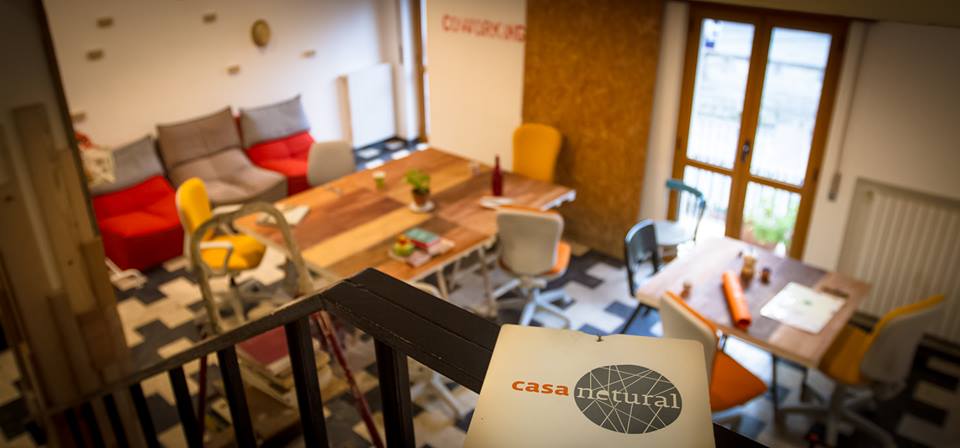 Located in a building of 220 m2 in Matera, Casa Netural includes a co-working space, a playroom, a kitchen, meeting rooms, relaxing rooms and bedrooms. The different rooms host various events and activities designed by and with the population of the neighborhood, with 90 associates and more than 500 participants. Casa Netural works as incubator for innovative and experimental projects which are enabled through a variety of economic resources coming from private funds, as well as by the income coming by the co-living fees, a percentage of the incubated projects and crowd-funding campaigns. Casa Netural’s objective is to create new business models and networks between communities and citizens around issues of social development and regional planning.
Located in a building of 220 m2 in Matera, Casa Netural includes a co-working space, a playroom, a kitchen, meeting rooms, relaxing rooms and bedrooms. The different rooms host various events and activities designed by and with the population of the neighborhood, with 90 associates and more than 500 participants. Casa Netural works as incubator for innovative and experimental projects which are enabled through a variety of economic resources coming from private funds, as well as by the income coming by the co-living fees, a percentage of the incubated projects and crowd-funding campaigns. Casa Netural’s objective is to create new business models and networks between communities and citizens around issues of social development and regional planning.
La fabrika detodalavida, Los Santos de Maimona (ES)
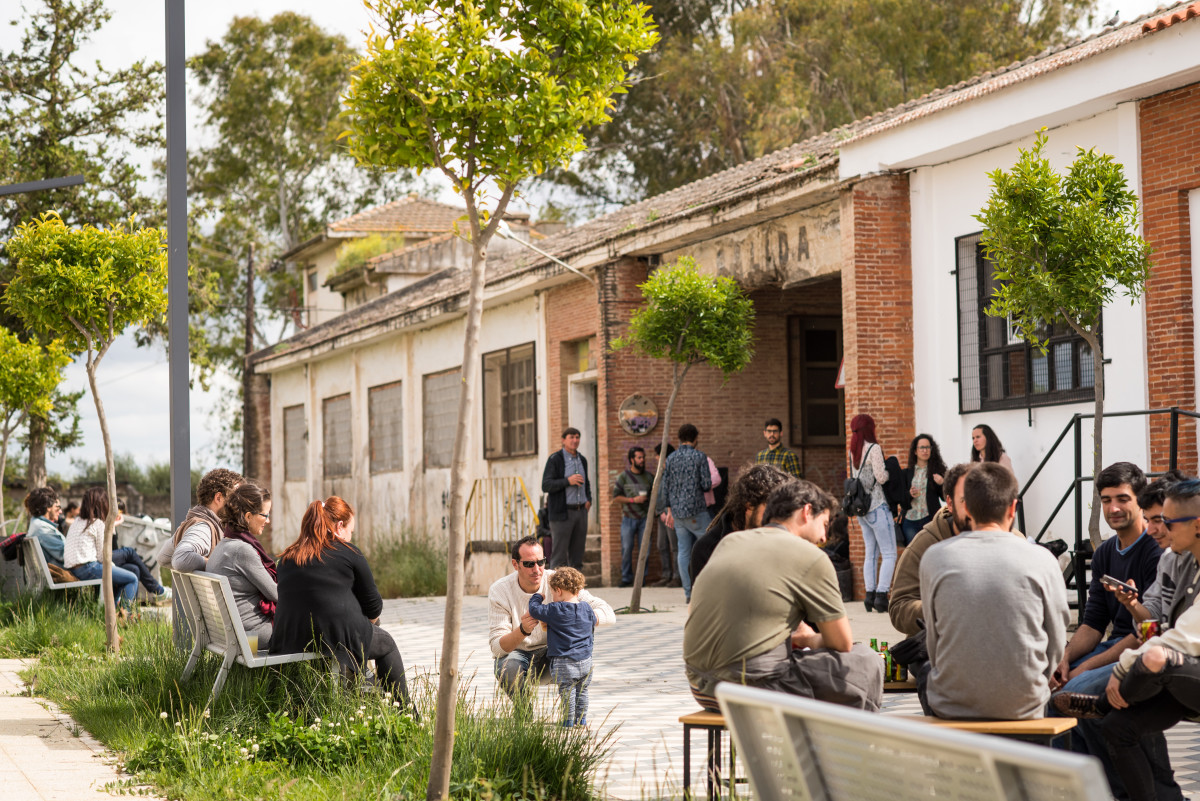 LaFábrika detodalavida is located in Los Santos de Maimona, a rural town in Extremadura. Using an old cement factory as its basis, La Fábrika detodalavida is a free, open and participatory project where anyone, any need and any idea are welcome. Initially, a crowdfunding campaign helped to collect the microfinance support which was complemented by the founders’ financial resources. Currently the project is supported by the profit of events and a system of alternative sharing system, including time banking.
LaFábrika detodalavida is located in Los Santos de Maimona, a rural town in Extremadura. Using an old cement factory as its basis, La Fábrika detodalavida is a free, open and participatory project where anyone, any need and any idea are welcome. Initially, a crowdfunding campaign helped to collect the microfinance support which was complemented by the founders’ financial resources. Currently the project is supported by the profit of events and a system of alternative sharing system, including time banking.
Nod makerspace, Bucharest (RO)
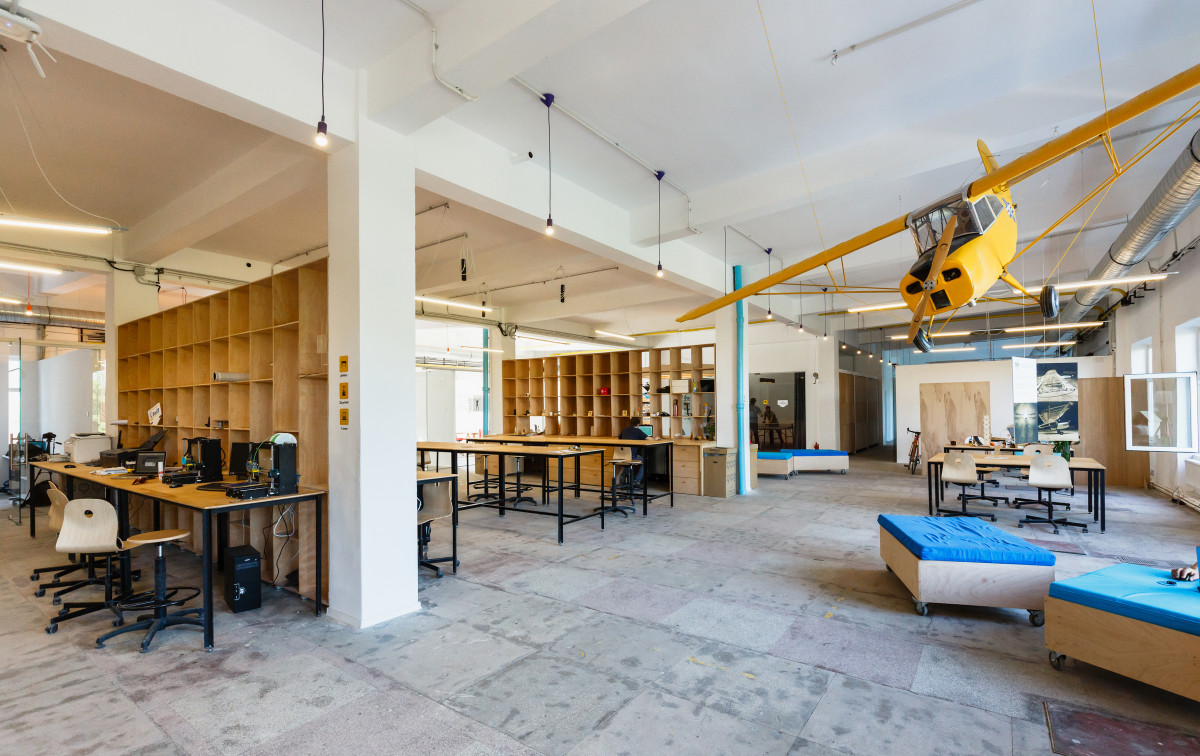 In October 2014, the initiators rented the unused and desolate 700 m2 second floor of an industrial building of the former Cotton Factory in Central Bucharest, overlooking the Dambovita river. During renovation, they presented the project to several companies in the design and construction field who agreed to support the project with construction material and equipment. The transformation of the industrial space was realised in 6 months, with a team of 15 volunteers and an investment of 120.000 euros. The sustainability of the maker space relies on membership fees and the services it provides. The space’s profit is reinvested in the development of the space, equipment and support to emerging businesses.
In October 2014, the initiators rented the unused and desolate 700 m2 second floor of an industrial building of the former Cotton Factory in Central Bucharest, overlooking the Dambovita river. During renovation, they presented the project to several companies in the design and construction field who agreed to support the project with construction material and equipment. The transformation of the industrial space was realised in 6 months, with a team of 15 volunteers and an investment of 120.000 euros. The sustainability of the maker space relies on membership fees and the services it provides. The space’s profit is reinvested in the development of the space, equipment and support to emerging businesses.
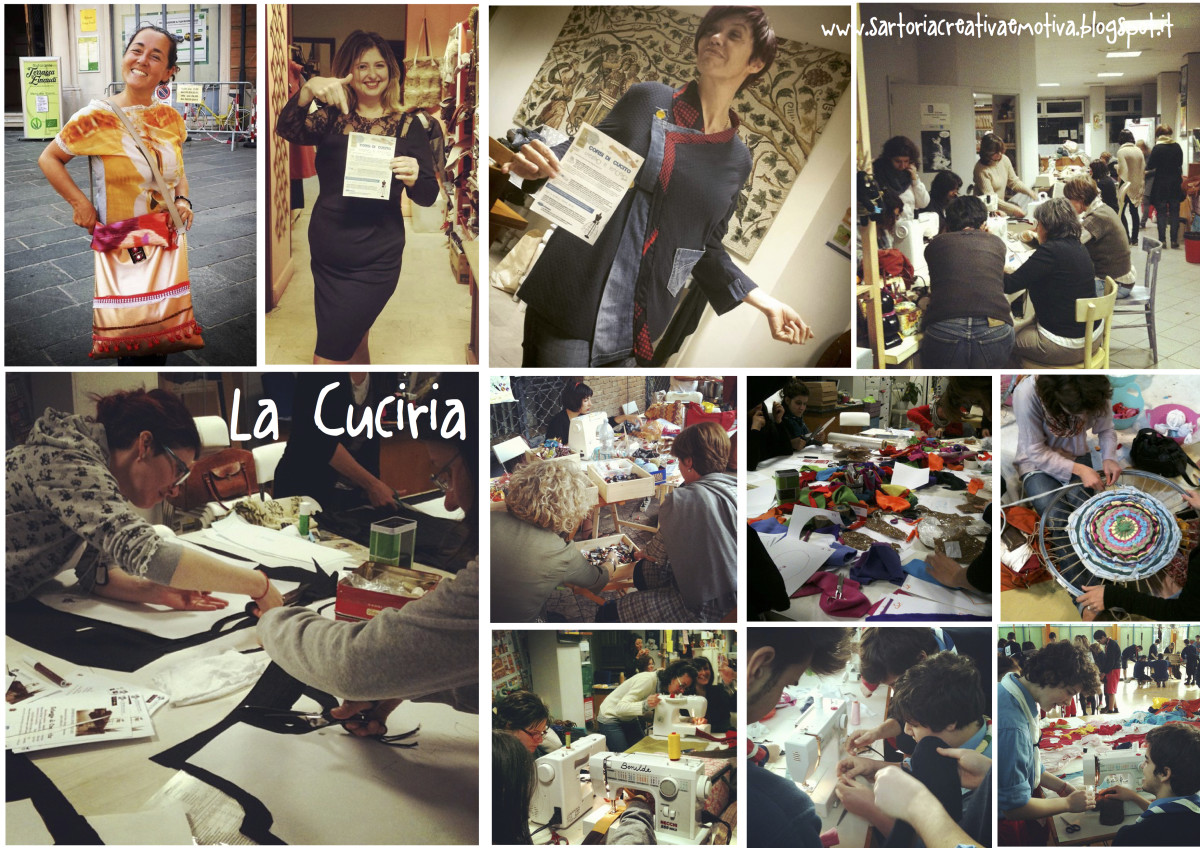 Social Sewing is based in a building of 200 m2 located in the periphery of Ravenna. The “Creative Emotive Sewing Workshop” aims at creating awareness of ethical consumption through the activity of sewing. The workshop functions as a commercial space to exhibit and sell locally created clothes to finance the operations of the space: a circular economy model where material scraps are reused to make new products that are sold to the public.
Social Sewing is based in a building of 200 m2 located in the periphery of Ravenna. The “Creative Emotive Sewing Workshop” aims at creating awareness of ethical consumption through the activity of sewing. The workshop functions as a commercial space to exhibit and sell locally created clothes to finance the operations of the space: a circular economy model where material scraps are reused to make new products that are sold to the public.
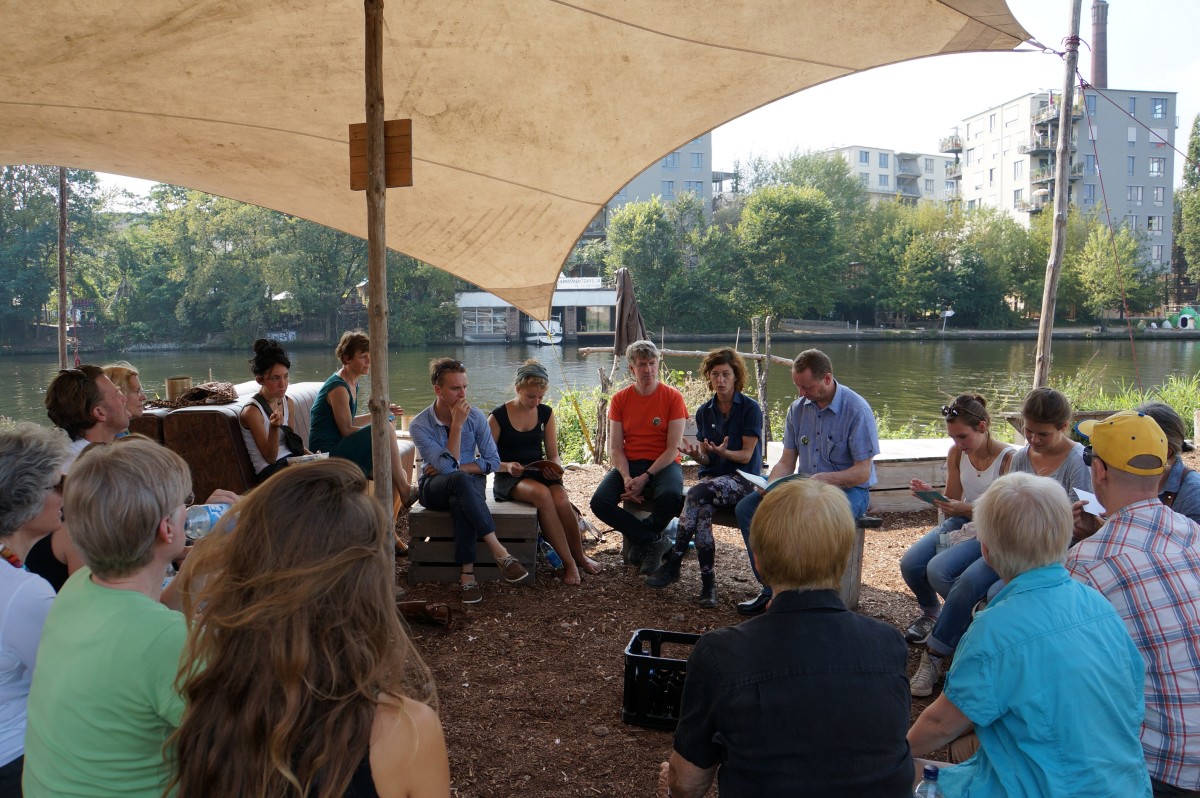 The Spreefeld was created as a pilot project to contribute to the ongoing debate around the development of the Spree river bank surrounding. The result is an area of 6.000 square meters of residential and work space with additional 1.500 square meters of mixed use with collaborative public space which is open to experimentation. Besides housing, the Spreefeld area also includes public access to the Spree through the neighbourhood, public areas at the riverbank as well as further public uses and activities. Two-thirds of the site remain unbuilt to allow for public uses. Three buildings offer spaces for living, working and creative collective activities.
The Spreefeld was created as a pilot project to contribute to the ongoing debate around the development of the Spree river bank surrounding. The result is an area of 6.000 square meters of residential and work space with additional 1.500 square meters of mixed use with collaborative public space which is open to experimentation. Besides housing, the Spreefeld area also includes public access to the Spree through the neighbourhood, public areas at the riverbank as well as further public uses and activities. Two-thirds of the site remain unbuilt to allow for public uses. Three buildings offer spaces for living, working and creative collective activities.
Peissnitzhaus,Halle/Saale (DE)
 Since the German reunification this historical building was abandoned, up until 2013 when 17 people founded the “Peißnitzhaus e.V.” ngo. The members renovated the building and revitalised it through cultural and educational events organised in collaboration other local associations. At the same time, they founded the “Peißnitzhaus Förderkreis gemeinnützige eG” – a charitable cooperative – that offers shares of 1.000€ which will help to support the renovation (by means of equity-ratio) and the takeover of ownership from the city. A charitable cooperative (under German law) is not allowed to pay interest to its shareholders, but the cooperative is allowed to give immaterial values worth up to 40 € (4%) to each member (f.e. as free entrance to cultural events). In that sense, the cooperative guarantees culture through the payment of interest rates that are culture. So far, over 90 members have signed and contributed with additional, non monetary values like know-how, materials and lobby-working.
Since the German reunification this historical building was abandoned, up until 2013 when 17 people founded the “Peißnitzhaus e.V.” ngo. The members renovated the building and revitalised it through cultural and educational events organised in collaboration other local associations. At the same time, they founded the “Peißnitzhaus Förderkreis gemeinnützige eG” – a charitable cooperative – that offers shares of 1.000€ which will help to support the renovation (by means of equity-ratio) and the takeover of ownership from the city. A charitable cooperative (under German law) is not allowed to pay interest to its shareholders, but the cooperative is allowed to give immaterial values worth up to 40 € (4%) to each member (f.e. as free entrance to cultural events). In that sense, the cooperative guarantees culture through the payment of interest rates that are culture. So far, over 90 members have signed and contributed with additional, non monetary values like know-how, materials and lobby-working.
 BAM is an experimental centre of independent cultural production in the south of Italy. This space is used to encourage the free diffusion and fruition of all kinds of knowledge, open sharing of uses, production resources and abilities, in order to be always mutualistic, cooperative and supportive. The group is made up of students, temporary employees, unemployed people, graduates, musicians, activists, artists and inhabitants of Sapri who are the greatest resource when running all the activities. To sustain BAM the community organises self-financing social dinners, crowdfunding campaigns and donations. All together they have decided to live the public places of their village, to recover them and to make them running and accessible to local inhabitants.
BAM is an experimental centre of independent cultural production in the south of Italy. This space is used to encourage the free diffusion and fruition of all kinds of knowledge, open sharing of uses, production resources and abilities, in order to be always mutualistic, cooperative and supportive. The group is made up of students, temporary employees, unemployed people, graduates, musicians, activists, artists and inhabitants of Sapri who are the greatest resource when running all the activities. To sustain BAM the community organises self-financing social dinners, crowdfunding campaigns and donations. All together they have decided to live the public places of their village, to recover them and to make them running and accessible to local inhabitants.
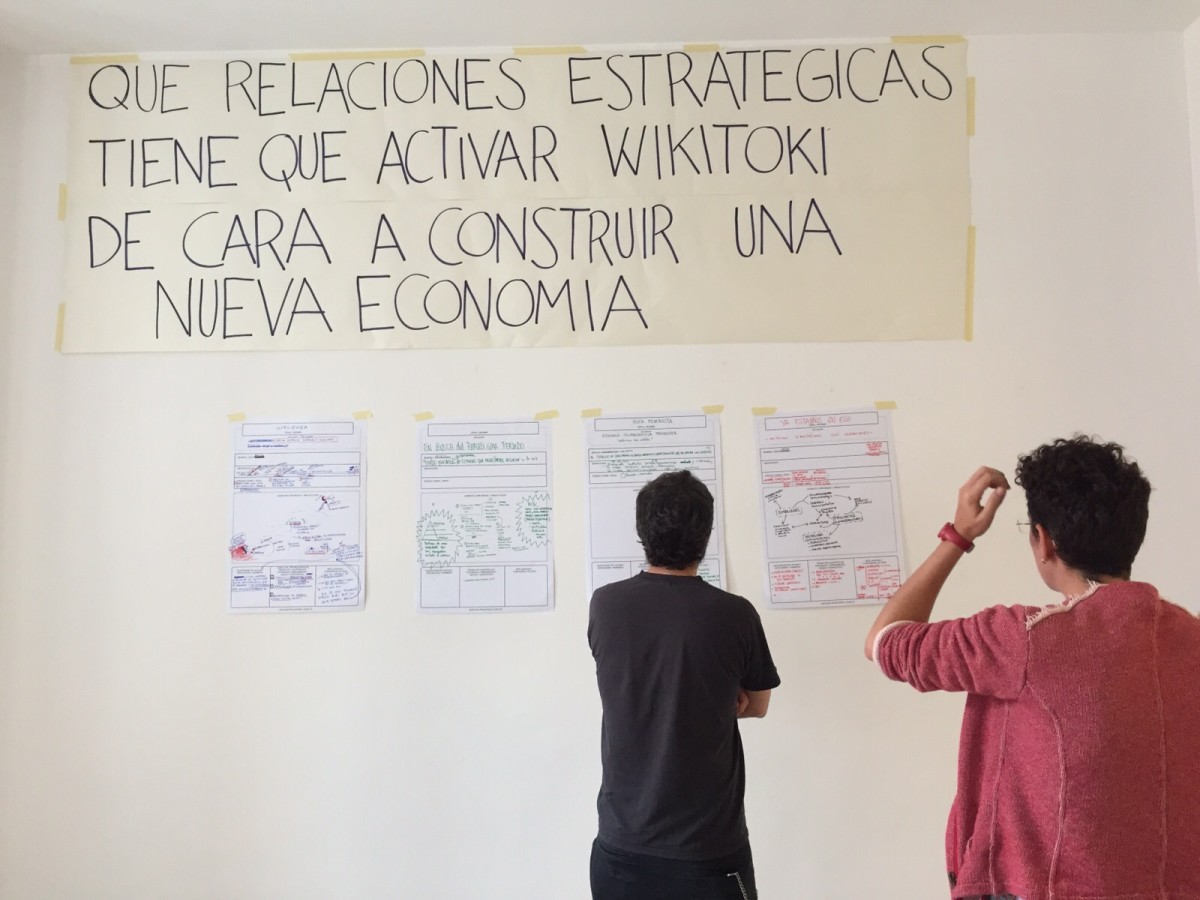 Wikitoki is a laboratory of collaborative practices located in a 370 sq mt space in Bilbao. Wikitoki hosts multiple activities with a focus on social, economic, urban, feminist, cultural and political implications that are developed through a mixture of disciplines following co-creation and active participation principles. The membership fees vary according to the different type of usage and this income is integrated with a series of activities with different economic margins that feed into a mutualistic model. Also a new system of partnership has been introduced based on the idea of residencies, to provide dynamism, open to more people and incorporate other interests and abilities.
Wikitoki is a laboratory of collaborative practices located in a 370 sq mt space in Bilbao. Wikitoki hosts multiple activities with a focus on social, economic, urban, feminist, cultural and political implications that are developed through a mixture of disciplines following co-creation and active participation principles. The membership fees vary according to the different type of usage and this income is integrated with a series of activities with different economic margins that feed into a mutualistic model. Also a new system of partnership has been introduced based on the idea of residencies, to provide dynamism, open to more people and incorporate other interests and abilities.
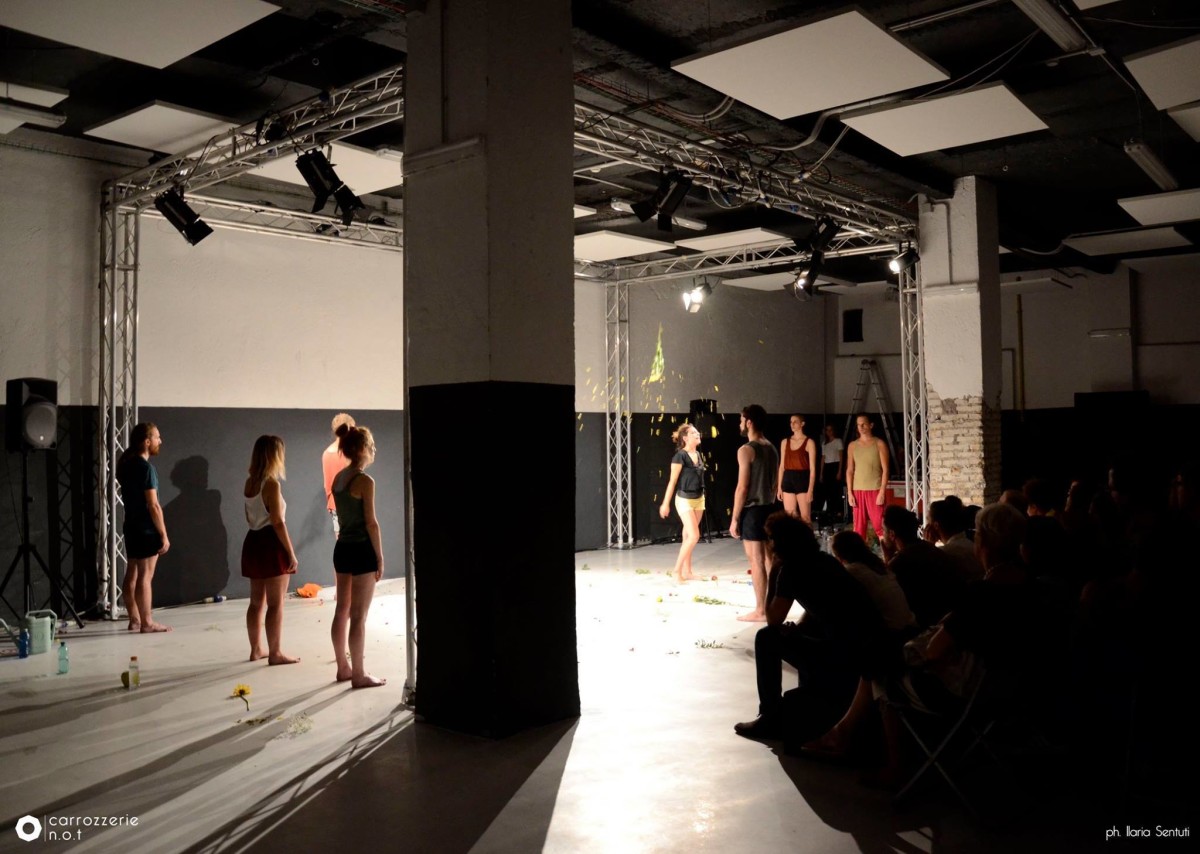 The name origins from the prior function of this 300m2 space, which used to be a car factory in Rome, and is now a cultural and performing arts centre engaged with multiple theatres, festivals and institutions in the city. This cultural association is sustained thanks to the income coming from events, performances and workshops and the profit is reinvested to run activities such as workshops and residency programs for artists. They believe that a cultural centre can be sustainable with its own professional activity and like to demonstrate it with their own actions!
The name origins from the prior function of this 300m2 space, which used to be a car factory in Rome, and is now a cultural and performing arts centre engaged with multiple theatres, festivals and institutions in the city. This cultural association is sustained thanks to the income coming from events, performances and workshops and the profit is reinvested to run activities such as workshops and residency programs for artists. They believe that a cultural centre can be sustainable with its own professional activity and like to demonstrate it with their own actions!
“Learning by doing” is the motto of this project which involves a program of collaborative learning, investigation, experimentation and prototyping. The institute DYI is hosted in a 180m2 in Madrid. The space provides the “IDYS School” with a training program conducting regularly theoretical and practical workshops, but also hosts the “Neighborhood Craft School” supporting the various neighbourhood participative initiatives developed through the Neighborhood Plan of the area. The space is organized by Todo Por la Praxis (TXP) together with some external collaborators. The space is self-managed through different financial resources such as public funding, self-funding, crowd funding and private funding, with an integration of some non-financial resources such as recycled or up-cycled materials.
